Intel Core i9-13900K and i5-13600K Review: Raptor Lake Brings More Bite
by Gavin Bonshor on October 20, 2022 9:00 AM ESTCPU Benchmark Performance: Rendering And Encoding
Rendering tests, compared to others, are often a little more simple to digest and automate. All the tests put out some sort of score or time, usually in an obtainable way that makes it fairly easy to extract. These tests are some of the most strenuous in our list, due to the highly threaded nature of rendering and ray-tracing, and can draw a lot of power.
If a system is not properly configured to deal with the thermal requirements of the processor, the rendering benchmarks are where it would show most easily as the frequency drops over a sustained period of time. Most benchmarks in this case are re-run several times, and the key to this is having an appropriate idle/wait time between benchmarks to allow for temperatures to normalize from the last test.
One of the interesting elements of modern processors is encoding performance. This covers two main areas: encryption/decryption for secure data transfer, and video transcoding from one video format to another.
In the encrypt/decrypt scenario, how data is transferred and by what mechanism is pertinent to on-the-fly encryption of sensitive data - a process by which more modern devices are leaning to for software security.
We are using DDR5 memory on the Core i9-13900K, the Core i5-13600K, the Ryzen 9 7950X, and Ryzen 5 7600X, as well as Intel's 12th Gen (Alder Lake) processors at the following settings:
- DDR5-5600B CL46 - Intel 13th Gen
- DDR5-5200 CL44 - Ryzen 7000
- DDR5-4800 (B) CL40 - Intel 12th Gen
All other CPUs such as Ryzen 5000 and 3000 were tested at the relevant JEDEC settings as per the processor's individual memory support with DDR4.
Rendering
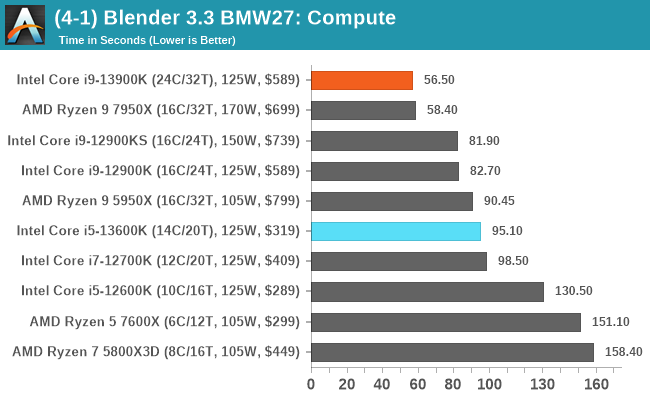
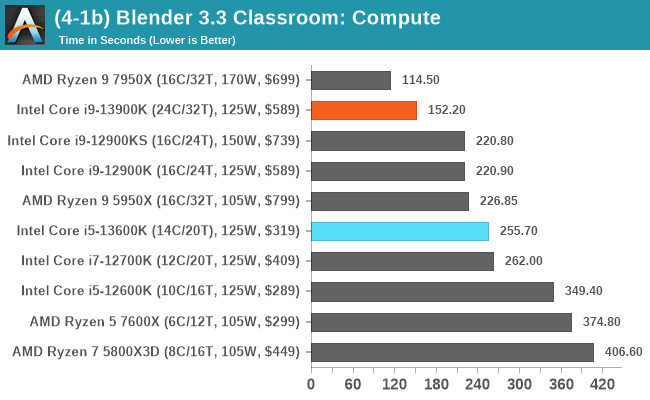
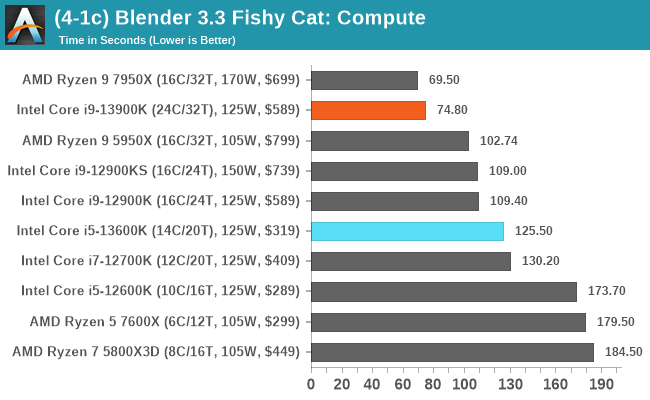
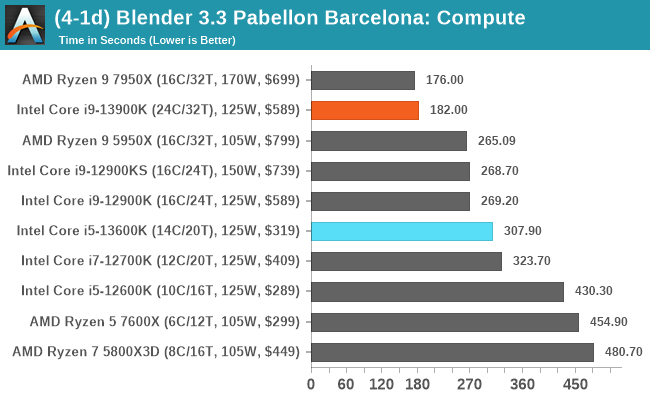
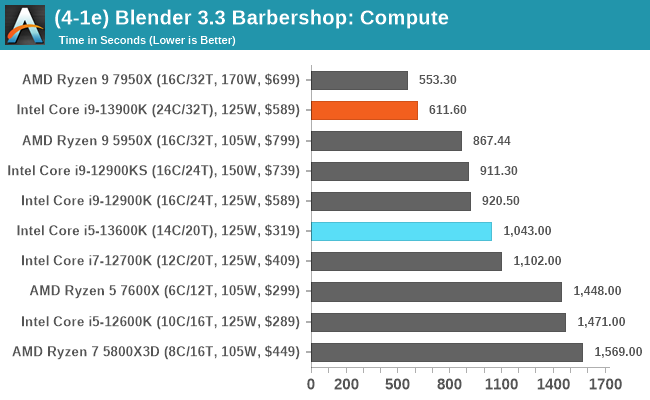
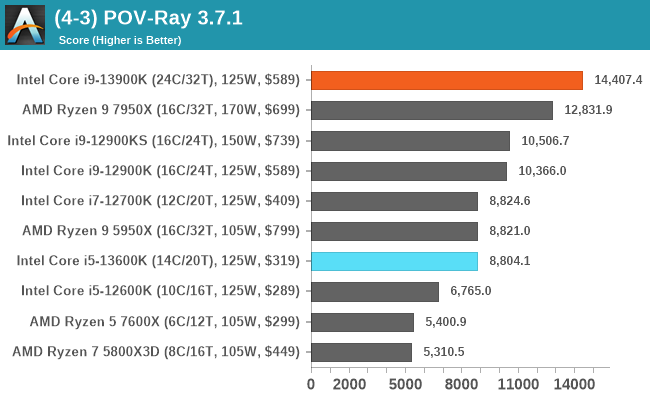
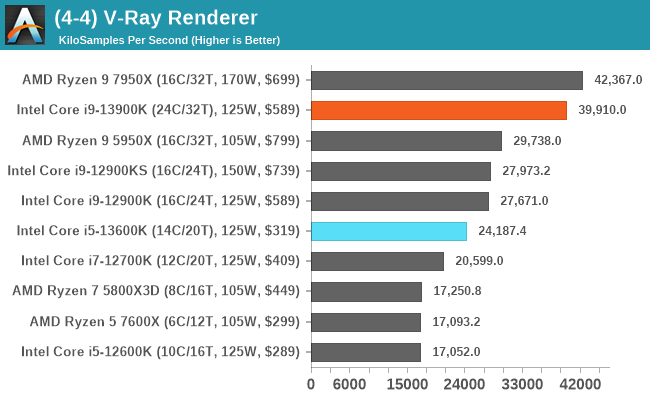
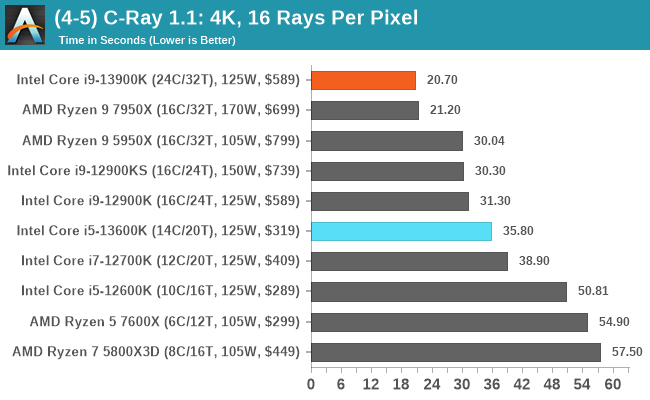
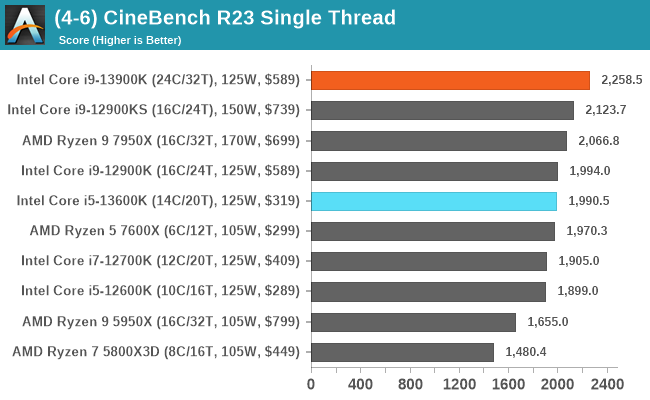
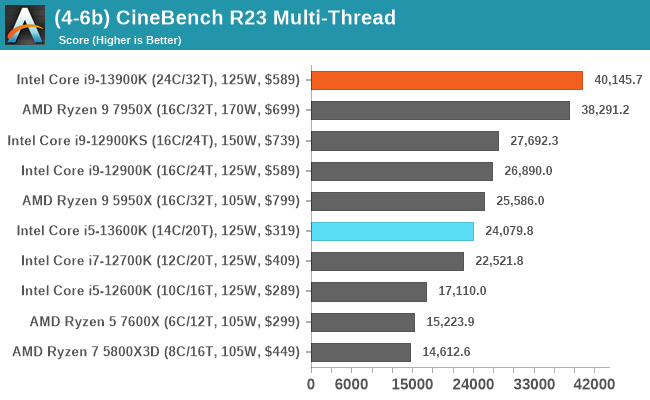
Identifying what core comes where in our rendering tests, both the Core i9-13900K and Ryzen 9 7950X sit comfortably at the top of the tree. Depending on the test, it’s a consistent battle for rendering supremacy. Where things aren’t as close are in our POV-Ray and V-Ray tests, where the Core i9-13900K has a distinct advantage; likely down to having eight more logical cores than the 7950X.
Encoding
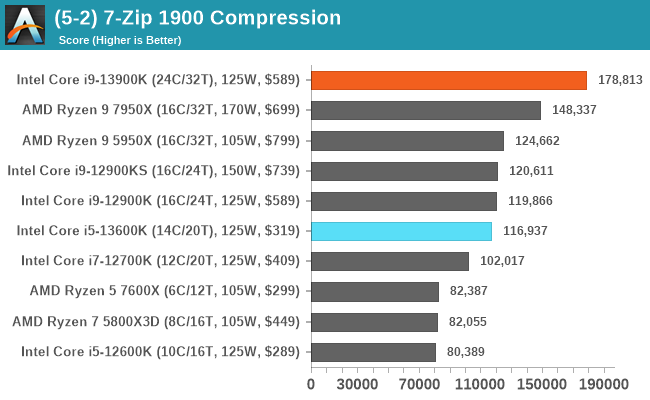
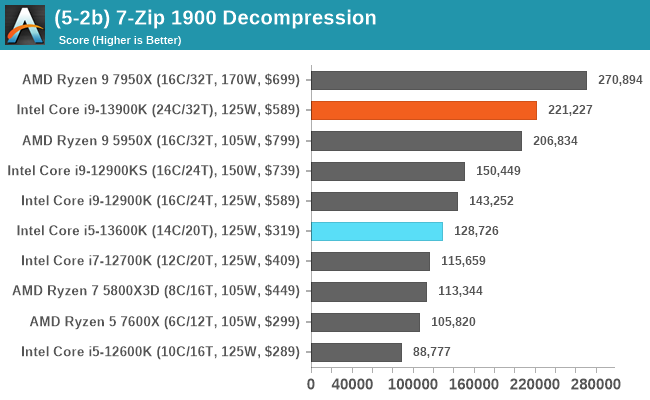
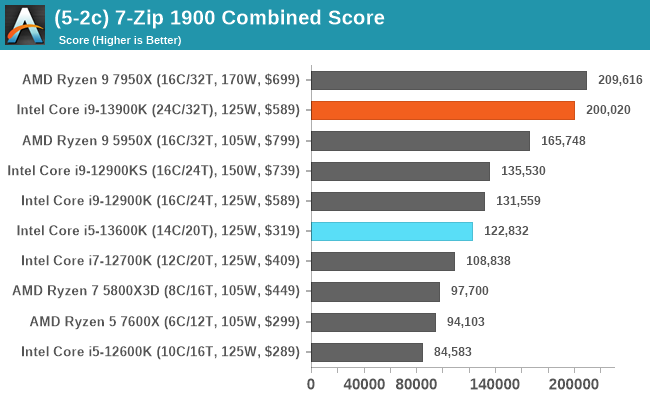
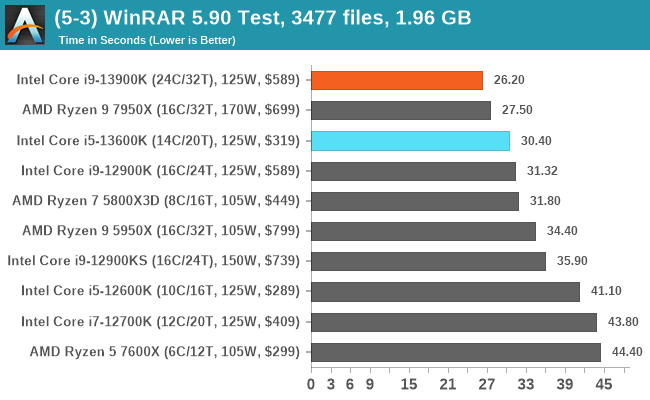
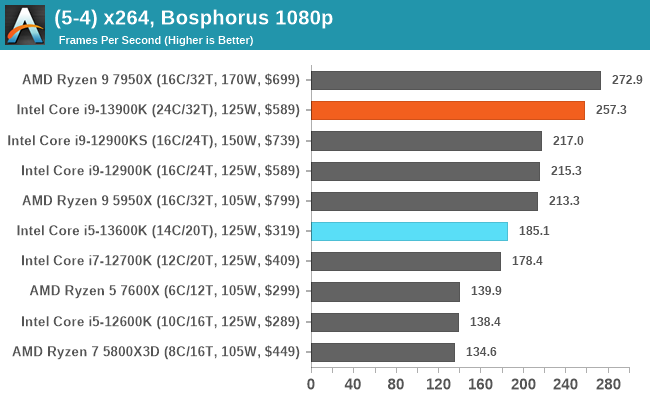
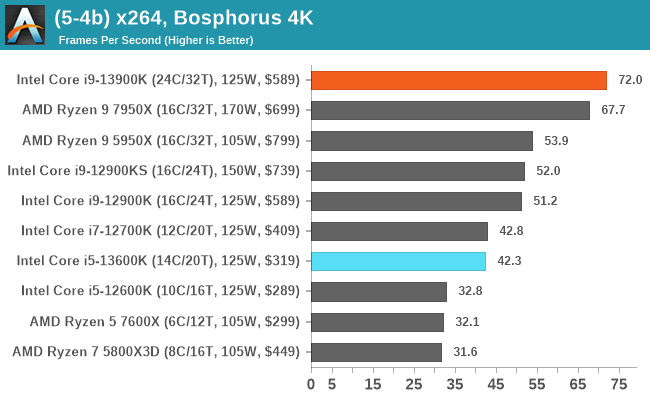
In our encoding tests, interestingly the Core i9-13900K looks to have the advantage in compressing files with 7-Zip. It’s a little different for AMD as the Ryzen 9 7950X decompresses the data better, with the overall combined advantage going to AMD in this particular test. In our updated x264 benchmark, Intel takes the lead in 4K encoding, while AMD has the lead in 1080p encoding; both are equally viable options, however.










169 Comments
View All Comments
flyingpants265 - Thursday, October 20, 2022 - link
That doesn't matter. All that proves is TDP is a phony measurement. If the CPU draws up to 300 watts, then it's a 300 watt CPU. Replyyh125d - Friday, October 21, 2022 - link
Exactly ReplyIketh - Friday, October 21, 2022 - link
proving TDP is a phony measurement is the entire point of that post ReplyYojimbo - Friday, October 21, 2022 - link
Firstly this discussion is not confined to Intel. All the modern CPUs use turbo clocks. They all have various performance characteristics dependent on the thermal design of the product they are in.Please cite where Intel writes that. Intel only uses TDP in its technical literature these days for the very reason that consumers are confused about it. Intel uses PL1 and PL2. TDP is the MINIMUM power that one should be designing for, not the maximum. The amount of turbo clock exposed by the cooling solution is optional, but the thermal solution associated with the processor must be capable of handling the TDP. The processor will not be damaged with a cooling solution that only handles the TDP. The processor will not use its turbo clocks much and will stay at or below the TDP power except for short periods of time. On the other hand if a cooling solution cannot handle the TDP there could he bad consequences.
Again. This isn't an Intel-specific thing. TDP and turbo clocks are ubiquitous in the industry. What is also very widespread is massive misunderstanding and misinformation about the term. Perhaps Anandtech should stop using the term with respect to CPUs because it seems to me that it's a minority of readers who understand it. Reply
Meteor2 - Saturday, October 22, 2022 - link
Reviews should stop quoting TDP. Intel no longer uses it; their latest product spec pages e.g. for the i9-13900K quote Maximum Turbo Power: "The maximum sustained (>1s) power dissipation of the processor as limited by current and/or temperature controls. Instantaneous power may exceed Maximum Turbo Power for short durations (<=10ms). Note: Maximum Turbo Power is configurable by system vendor and can be system specific."Which for the i9-13100K is 253W. Reply
Meteor2 - Saturday, October 22, 2022 - link
AMD still quotes TDP (e.g. 170W for the 7950X) with no definition of TDP provided, which I would suggest IS misleading. Replyat_clucks - Monday, October 24, 2022 - link
Ah, not confined to Intel, solid argument that it's not a problem to do it but that "people are uneducated". Scale matters. When your real power consumption is 120% over the advertised one (see link below) this isn't an "everybody's doing it" but it is indeed a matter of "people are uneducated". At this time Jimbo, anyone trying to find excuses for Intel, and downplaying the shenanigans is _really_ uneducated, was born yesterday, or benefits from the lie.This doesn't mean you should stop using Intel if it does the job for you,. But only a fool or the fraudster would defend or downplay what they're doing.
https://images.anandtech.com/graphs/graph17585/130... Reply
catavalon21 - Sunday, November 20, 2022 - link
"Please cite where Intel writes that."Step right up, folks...
https://www.intel.com/content/www/us/en/support/ar... Reply
Truebilly - Friday, October 21, 2022 - link
🫳🎤 ReplyHarryVoyager - Friday, October 21, 2022 - link
Doesn't especially matter whether they are conforming to the technical definition or not as it is tells me nothing useful about the CPU in the context in which it is presented. Reply